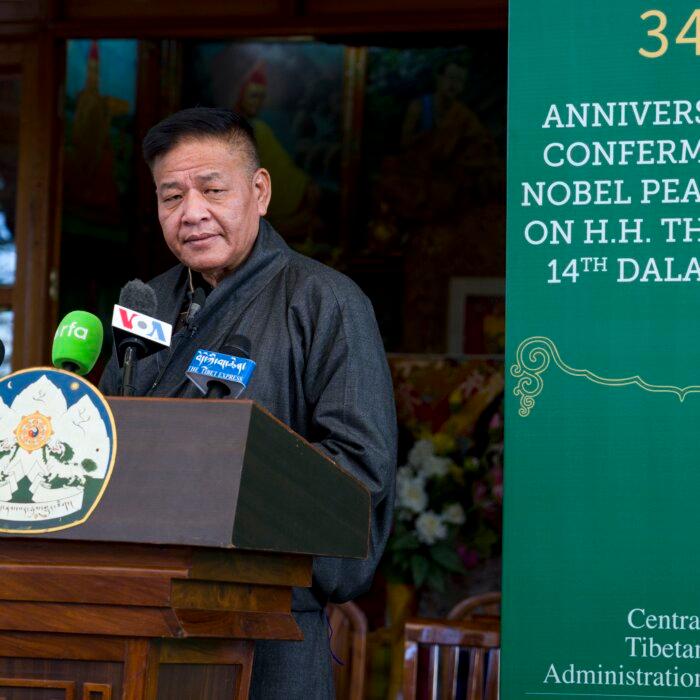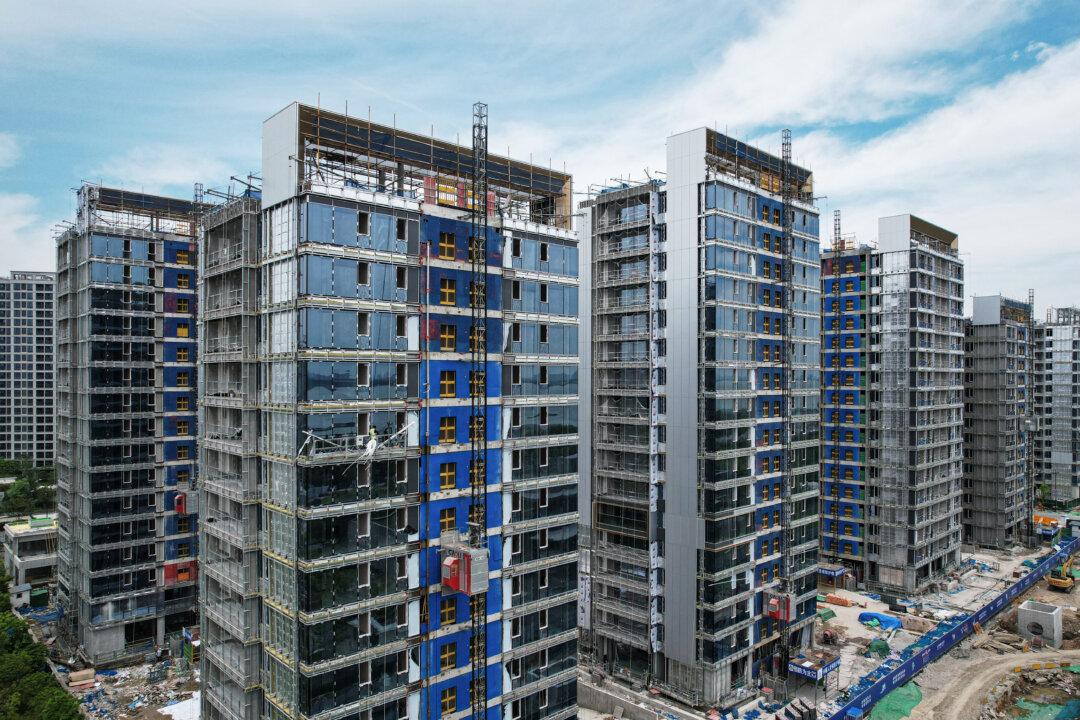An acceleration in the rate of evictions has been occurring since 2016, according to a report by the New York City-headquartered non-governmental organization (NGO) that conducts research and advocacy on human rights. While the Chinese Communist Party (CCP) maintains that these evictions—often to places hundreds of miles away—are voluntary and meant to “improve people’s livelihood” and “protect the ecological environment,” HRW argues they are forced.
HRW estimates that, based on official numbers, the CCP will have forcibly removed more than 930,000 Tibetans from rural areas between 2000 and 2025. The NGO said 76 percent of relocations have taken place since 2016.
It added that 200 out of 262 families in the Nagqu nomadic community were initially against relocating over a thousand kilometers (over 620 miles) away. The locals did, however, agree to the transfer.
According to the Central Tibetan Administration, the Tibetan government-in-exile based in India, the total Tibetan population in Tibet is 6 million. Of these, 2.09 million live in China’s Tibet Autonomous Region (TAR), while the rest live in Tibetan areas outside the TAR.
Tibetan people constitute an ethnic minority within the country, possessing a distinct language, culture, traditions, and unique culinary and sartorial customs.
The report also adds that an analysis of over “1,000 official Chinese media articles” from 2016 to 2023, alongside regime publications and academic field studies, reveals that China’s media often contradicts the claims that all relocated individuals gave their consent.
These news articles indicate that participation in “whole-village relocation” programs in Tibet is effectively compulsory. They describe significant reluctance among many Tibetans to relocate.
In another village slated for relocation, all the residents, except for a CCP activist, initially opposed the move. HRW reported that these villagers eventually consented to relocation. According to the NGO, no village or its members scheduled for relocation managed to avoid it.
To prevent the displaced individuals from going back to their old houses, the regime typically has their old houses demolished within a year of moving, according to the report.
“The Chinese government says that the relocation of Tibetan villages is voluntary, but official media reports contradict this claim,” Ms. Wang wrote in the report. “Those reports make clear that when a whole village is targeted for relocation, it is practically impossible for the residents to refuse to move without facing serious repercussions.”
Litany of Abuses
In its 2016 report, HRW stated that the CCP’s resettlement of over two million rural ethnic Tibetans from their traditional way of life constitutes a breach of international human rights laws.HRW added that under the New Socialist Countryside Plan, Beijing has forcibly displaced more than two-thirds of the region’s 2.7 million rural inhabitants into substandard townships, where many struggle to secure employment.
Human rights in China are periodically reviewed by international bodies and countries, including the United States, the United Kingdom, and Canada. International NGOs, such as Human Rights in China and Amnesty International, as well as citizens, lawyers, and dissidents within China, regularly report that mainland Chinese authorities frequently sanction or orchestrate human rights abuses.
The NGOs, as well as government institutions such as the U.S. Department of State, consistently provide evidence of the CCP violating freedoms of speech, movement, and religion for its citizens and others within its jurisdiction.
For example, in its 2023 Country Reports on Human Rights Practices for China, the U.S. Department of State highlighted instances of genocide and crimes against humanity targeting predominantly Muslim Uyghurs and other ethnic and religious minority groups in Xinjiang.
According to the State Department report, significant human rights violations included arbitrary or unlawful killings, enforced disappearances, government-sanctioned torture, and involuntary or coercive medical and psychological practices. Over one million Uyghurs and members of other predominantly Muslim minority groups have faced harsh and life-threatening conditions in prison and detention camps, the report found.
In 2021, U.S. lawmakers approved the Uyghur Forced Labor Prevention Act, which prohibits the importation of items manufactured using forced labor in Xinjiang, where the Uyghurs have been oppressed for their religious and cultural values.
“Tibetans in particular, along with Uyghurs in Xinjiang, are increasingly viewed by the government as politically suspect and as a security threat,” according to the new HRW report.
HRW’s report on Wednesday also highlighted the Chinese regime’s longstanding practice of involuntary relocations. The report noted that the CCP has relocated approximately 70 million Chinese citizens since the 1950s, primarily to facilitate urban development projects across China. Beginning in 1982, the government adopted “ecological migration” as a tactic to address poverty in regions deemed unsuitable for agriculture or other sustainable livelihoods, it said.
In uncovering the plight of Tibetan communities, HRW found that while mass relocations are common in impoverished rural regions of China, these initiatives pose an especially dire threat to the well-being of Tibetan societies.
“The mass relocations of rural Tibetan villages are severely eroding Tibetan culture and ways of life,” Ms. Wang wrote. “China’s government should suspend relocations in Tibet until an independent, expert review of existing policies and practices is carried out to determine their compliance with Chinese law and standards and international law concerning relocations and forced evictions.”







